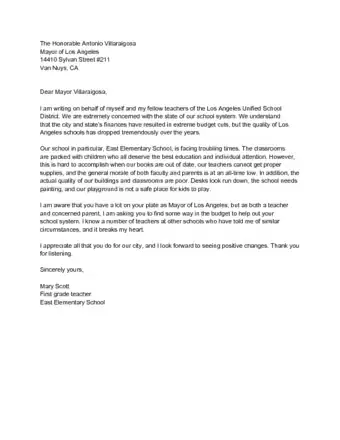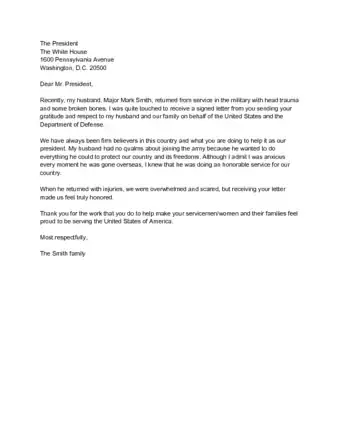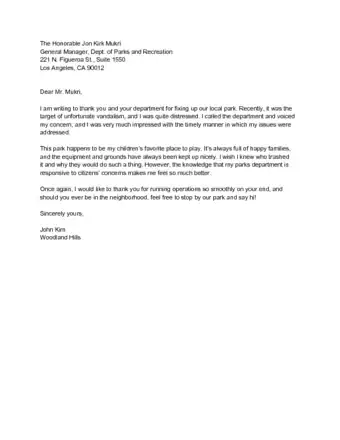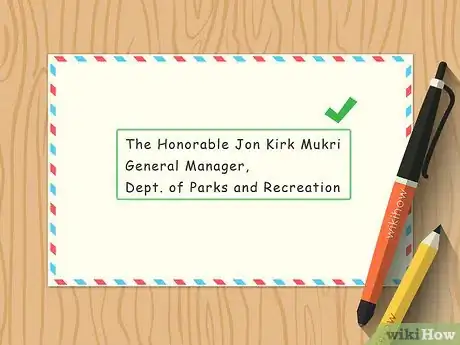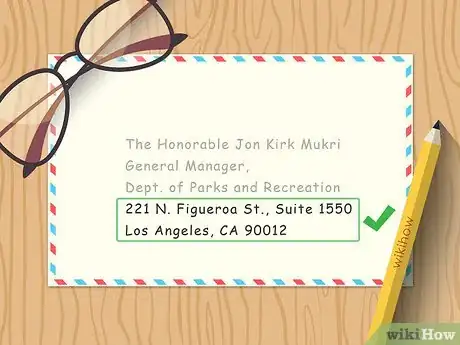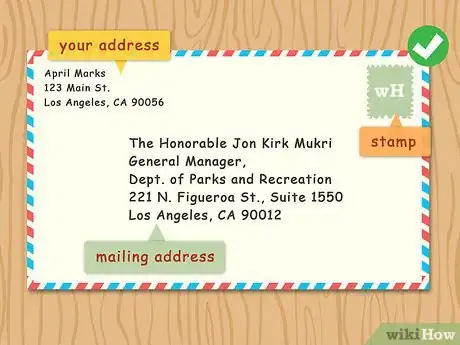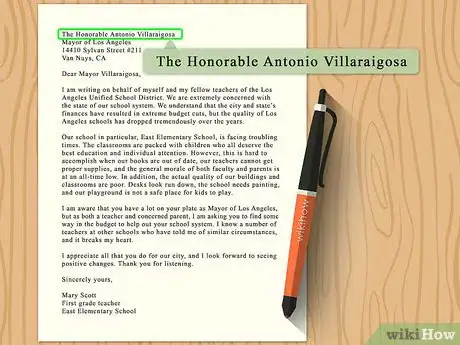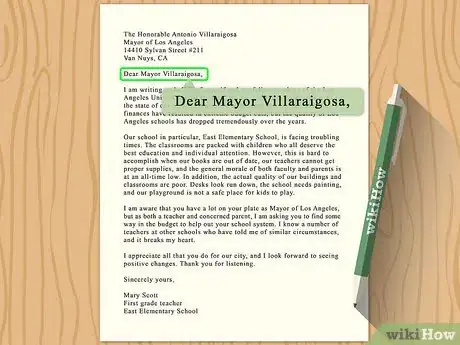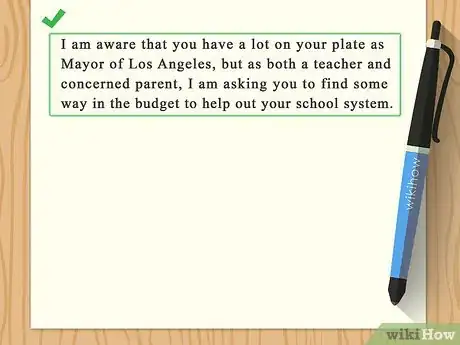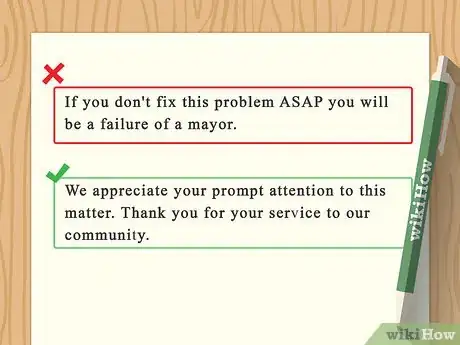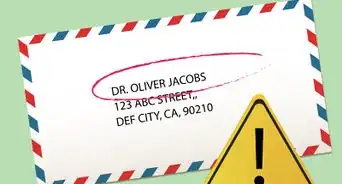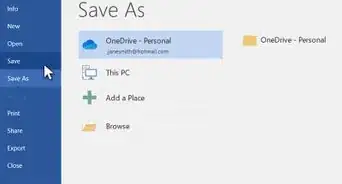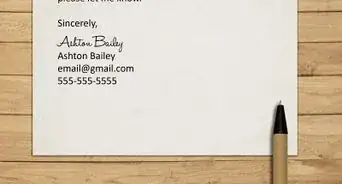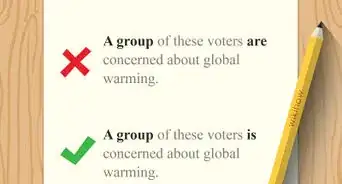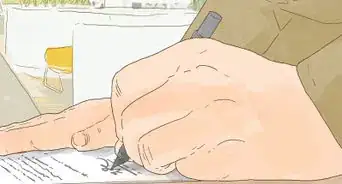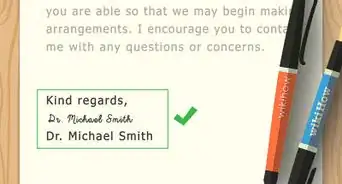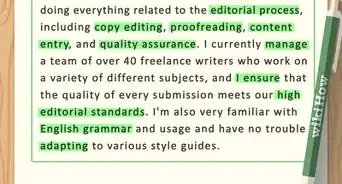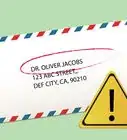This article was co-authored by Tami Claytor. Tami Claytor is an Etiquette Coach, Image Consultant, and the Owner of Always Appropriate Image and Etiquette Consulting in New York, New York. With over 20 years of experience, Tami specializes in teaching etiquette classes to individuals, students, companies, and community organizations. Tami has spent decades studying cultures through her extensive travels across five continents and has created cultural diversity workshops to promote social justice and cross-cultural awareness. She holds a BA in Economics with a concentration in International Relations from Clark University. Tami studied at the Ophelia DeVore School of Charm and the Fashion Institute of Technology, where she earned her Image Consultant Certification.
wikiHow marks an article as reader-approved once it receives enough positive feedback. This article received 13 testimonials and 82% of readers who voted found it helpful, earning it our reader-approved status.
This article has been viewed 2,181,430 times.
Writing a letter to a government official can be a great way to weigh in on what's going on in your nation, state, or locality. Search online for the official mailing address of the leader that you wish to contact. The proper addressing etiquette varies from official to official, so make sure to look up the standard for the specific person to whom you are sending the letter!
Things You Should Know
- Address your letter with the official's title, full name, and address. Then, make sure to include your name and a stamp in left and right corners respectively.
- Ask for something actionable and realistic. For example, ask them to raise the budget for your child's school.
- Keep your letter formal and appropriate. Show this official respect and use a professional tone of voice.
Steps
Sample Letters
Addressing the Letter
-
1Learn the official's name. Make sure that you know exactly who this person is, and that he or she is the appropriate person to contact about your case. Clarify why you are writing a letter to this particular official.
-
2Find the mailing address of the official. Run a web search for "[government official] mailing address." If a web search doesn't turn up the answer, then visit the website for the relevant department of the local, state, or national government.
- If you’re in the US, you can find a comprehensive list of contact information for national, state, and local administrators at https://www.usa.gov/.
- If you’re not sure who to address, look for the address of the relevant department. For instance, you could write your local DMV office or the Department of Homeland Security.
Advertisement -
3Address the letter. Include theofficial's title and full name(e.g. President Barack Obama) along with his or herofficial mailing address.Write the words clearly and legibly in the center of an envelope, and then seal the letter inside the envelope. Stick a stamp in the top-right corner of the envelope. If you are hoping for a response from this government official, make sure to write your full name and return address in the top-left corner of the envelope![1]
Following Proper Etiquette
-
1Show due respect. Open your letter with a formal salutation, and end it with an appropriate closing statement. Depending on the level of government, this official may employ a team of secretaries to read through his or her mailbox for important letters. Apolite, thoughtful, and well-written letterwill almost always be more likely to make it through this filtration system.[2]
- If writing to an embassy or ambassador, read How to Address Ambassadors.
-
2Use the proper title. Address a government official using their title and last name. However, if there is only ever one person in a given post at a time (e,g, the President, the Mayor, or the Speaker of the House,) then you can address the person by his or her title alone: Mr. President or Ms. Mayor. If multiple people hold a given office at one time (e.g. Senator, Justice, Representative,) then you need to use the last name to clarify whom, exactly, you're addressing.[3]
- It never hurts to include the official's name,even if he or she is the only person holding the position. A personally-addressed letter lends a certain degree of humanity to your message.
- It never hurts to
-
3Read sample letters, or send a form letter.[4] Do your research to find out how other people have addressed letters to this particular government official. Some activism groups and petition websites will actually provide specific information about contacting the officials relevant to a certain cause. You may also be able to simply email the official.[5]
- If you’re unsure of what to write, try looking up a form letter and a clear subject line that gets your point across. Some elected officials receive hundreds of letters a day, and oftentimes don’t read them all closely.
Writing an Actionable Letter
-
1Ask for something doable. Before you send the letter, consider whether this government official will be able to meaningfully act on your letter.Avoid asking for unrealistic things.Do not ask the government official to do more than his/her job allows. Take a step back and consider whether there is a better channel for your complaint.[6]
- Petitions and form letters are usually well-written and actionable. Make sure, however, that the demanded actions fall within the scope of this official's duties.
-
2Get your letter to the top of the stack. Depending on rank, government officials may receive dozens to hundreds of letters each day. He or she may even employ professional letter-sorters to determine which select few messages actually wind up in the hands of the official. Make your letter polite, concise, and topical. In the first sentence or subject line, reference an issue that is at the top of the official's agenda.
- The letters that wind up at the top of the stack will be readable, relevant, and easy for the official to understand.
- Be sure to include your qualifications and explain why the official should listen to you. For example, if you’re a Ph.D., you live in the town that’s been in the news lately, or you recently met the official, they may take note of your opinion.
-
3Make sure that your letter is appropriate. Is it necessary, or are you just venting? Send a request that is polite, concise, and realistic. Do not swear or drop insults.Respect begets respect.
- Do not threaten a government official. The letter can be traced back to you. Beyond any risk, your threats will not necessarily inspire productive action.
Community Q&A
-
QuestionHow can I write a letter to an official if I am 12-years-old?
 Community AnswerThere is no age requirement to write to an official. As long as you are clear with your intent and your topic, you may write to the official. Locate their official mailing address, be sure you are addressing the right person, and write away.
Community AnswerThere is no age requirement to write to an official. As long as you are clear with your intent and your topic, you may write to the official. Locate their official mailing address, be sure you are addressing the right person, and write away. -
QuestionIs it OK to mail a letter about an an idea I have to help the area?
 Community AnswerYes. You might want to check the government's website to see if it already covered that topic.
Community AnswerYes. You might want to check the government's website to see if it already covered that topic. -
QuestionHow do I write a letter of appreciation to a governor?
 Community AnswerThe first paragraph of your letter would be to give reference to the event, activity or incident you are referring to. In your second paragraph, relate the objective of the program, project or activity of your company where the assistance or support provided by the governor has contributed to its accomplishment, and that such gesture is highly appreciated. End your letter with giving thanks for their support and cooperation on matters of mutual concern.
Community AnswerThe first paragraph of your letter would be to give reference to the event, activity or incident you are referring to. In your second paragraph, relate the objective of the program, project or activity of your company where the assistance or support provided by the governor has contributed to its accomplishment, and that such gesture is highly appreciated. End your letter with giving thanks for their support and cooperation on matters of mutual concern.
References
- ↑ http://ctb.ku.edu/en/table-of-contents/advocacy/direct-action/letters-to-elected-officials/main
- ↑ https://ctb.ku.edu/en/table-of-contents/advocacy/direct-action/letters-to-elected-officials/main
- ↑ https://ctb.ku.edu/en/table-of-contents/advocacy/direct-action/letters-to-elected-officials/main
- ↑ http://pai.org/silentpartner/documents/letter_govt_official.pdf
- ↑ https://www.share4rare.org/sites/default/files/imce/S4R_Tools_Letter%20to%20politician.pdf
- ↑ https://ctb.ku.edu/en/table-of-contents/structure/strategic-planning/develop-action-plans/main
About This Article
To address a letter to a government official, first you need to find the official’s name and titles, which help to demonstrate respect when addressing your letter. Then, find their address by searching online for their name and the phrase “mailing address,” or check USA.gov for a list of addresses for many officials. When writing the envelope, include their full name, titles, and official address clearly and legibly on the front, and be sure to write your return address in the top left corner. Simply place the stamp in the top right and drop the letter in the mail. If you want to learn more, such as how to use actionable language in your letter, keep reading the article!
